Privacy Policy
Protecting Your Personal Health Information
At ARC, we value your trust and are committed to protecting your personal health information. In compliance with the Health Insurance Portability and Accountability Act (HIPAA), we have implemented measures to safeguard your health information from unauthorized access, use, or disclosure.
Our Commitment to Uphold Your Privacy Rights

Safeguarding Your Health Information
Your Privacy Matters to Us
This document details how your medical information may be used and disclosed, as well as how you can acquire access to this information. Please review this document carefully. For further information or if you have any questions regarding our HIPAA Compliant Privacy Policy, please contact us at +1 (866) 484-2502 or contact us by email: info@americanrecoverycenter.net
Remember, this is your private health information, and we are committed to respecting your rights. ARC will never market or sell your personal information.
Effective Date of this Notice: November 28, 2023.
Obtain a copy of your records: You can request access to a digital or physical copy of your medical record and/or other personal health information. A copy or summary of your health information will be provided to you upon request, usually within 30 business days. A reasonable fee may be charged upon request.
Make corrections to your records: You can correct any personal health information you believe to be incorrect or incomplete. If your request is denied, we will provide a detailed explanation within 60 business days.
Request confidential communication: You can specify your preferred form of contact such as mobile, work, or home phone, or request changes to your mailing address. Note that any requests deemed unreasonable will be denied.
Limit the information we share: You can request certain personal health information to not be used or disclosed regarding treatment, payment, or operations of our organization.
Access a list of information disclosures: You can request a breakdown of the times we’ve shared your personal health information, going back as far as six years.
Delegate someone to act on your behalf: You can designate a person with medical power of attorney or a legal guardian to exercise your rights and make decisions about your health information.
File a complaint if your rights are violated: If you feel we have violated your rights, you can file a formal complaint by using the contact information provided.
Disclosure of your medical condition: You have several choices about how we use and share information about your medical condition to your family and/or friends.
Disaster relief: You can request we provide information for disaster relief efforts.
Hospital directory: You can opt to have your information included in our hospital directory.
Behavioral health and substance use disorder care: You can request we share information to assist with providing behavioral health and substance use disorder care.
Marketing and funding: You can dictate how we market our services and use your information for funding.
Treatment provision: We may use your health information and share it with other professionals who are treating you.
Organization operation: We may use and share your health information to conduct our operations, improve your treatment/care, and contact you when necessary.
Invoicing for services: We may use and share your health information to invoice and receive payment from health plans or other entities.
Public health and safety: We may share your health information in the course of preventing disease, assisting with product recalls, reporting adverse reactions to medications, reporting suspected abuse, neglect, or domestic violence, and preventing or reducing a serious threat to anyone’s health or safety.
Research: We may use or share your personal health information for health research.
Compliance with laws and regulations: We will share your personal health information to comply with state or federal laws, including the Department of Health and Human Services if requested.
Organ and tissue donation requests: We may share your personal health information with organ procurement organizations.
Legal actions and lawsuits: We may share your personal health information in response to a subpoena, court, or administrative order.
Disclose information to family, friends, or others involved in your care: You can direct us on how we share your health information in these situations.
Disclose information in disaster relief situations: If you’re unable to direct us about your preference, we may disclose your information if we believe it is in your best interest.

